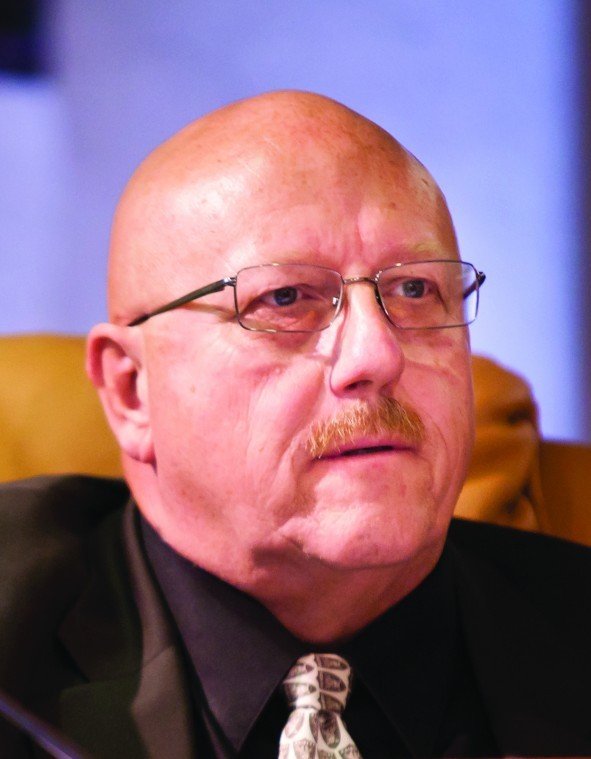“Among other common lies, we have the silent lie – the deception which one conveys by simply keeping still and concealing the truth. Many obstinate truth-mongers indulge in this dissipation, imagining that if they speak no lie, they lie not at all.”
~ Mark Twain
News broke last week that two-term Gilroy City Councilman and mayoral candidate Dion Bracco entered guilty pleas in 1990 to two drug charges, including felony possession of methamphetamines for sale. According to staff writer Mark Powell’s report, the pleas stemmed from a 1989 arrest in Morgan Hill in which undercover officers purchased meth from Bracco’s roommate after telling her, “Dion sent us over.” Police found meth in the apartment and on Bracco himself.
It’s pretty dramatic stuff: I was visiting universities in southern California with my daughter last week and the news pierced my college-admissions bubble.
This news raises pertinent questions: Should Bracco have voluntarily disclosed his felony conviction during his three city council campaigns (2003, unsuccessful; 2005 and 2010, successful) or his current campaign for mayor? What about when he sought and was appointed to a seat on Gilroy’s Planning Commission in 2003? Should commission applicants or elected office candidates be required to disclose any prior felony convictions?
Gilroy’s city charter says that an elected official automatically vacates his or her seat if convicted of a felony. Given that, does his decades-old felony conviction disqualify Bracco? Gilroy’s city attorney is researching that question.
Should Morgan Hill residents care about this episode? I think so, for two reasons. First, these are valid questions for Morgan Hill residents to consider about their own elected officials. Second, Gilroy and Morgan Hill often share representation on various regional boards like the Santa Clara County Library Joint Powers Authority board and the Valley Transportation Authority.
I’m not hard-nosed about how society should treat ex-cons. For example, I oppose efforts to make it more difficult for felons who have completed their sentences to vote. I worry about draconian Megan’s Law restrictions that make it difficult for sex offenders to find places to live or work.
It’s best for all of us when ex-cons are rehabilitated and become contributing members of society. It’s bad for all of us if we make ex-cons into pariahs who cannot support themselves or find a place in civilized society after they pay for their crimes.
But I’m sympathetic to the argument that a higher standard should apply when someone is asking for the trust of voters. What it comes down to, really, is whether a felony conviction is relevant information for voters when they’re evaluating candidates for elected office.
It might be that Bracco had no legal obligation to disclose his felony conviction. However, when he decided to keep that information to himself, Bracco accepted the risk that the news might come out anyway.
Frankly, given what a small community South County is, I’m surprised that it took nearly a decade after Bracco’s first run for a City Council seat. Bracco probably weighed the consequences of self-disclosure – lower likelihood of winning elections – against the consequences of the kind of revelation that happened last week. Given that he was appointed to Gilroy’s Planning Commission and won two City Council elections before his felony conviction was revealed, perhaps an analysis of the risks and rewards that favored non-disclosure was correct in terms of maximizing the odds of winning elections.
However, by not revealing his felony conviction, Bracco squandered the opportunity to build trust and to present his story as one of learning difficult lessons from the school of hard knocks, of redemption, of turning his life around.
Instead, Bracco faces not only uncomfortable questions about his judgment and trustworthiness that he would have faced had he voluntarily disclosed his felony conviction, but also questions about his honesty and whether other unpleasant but arguably relevant information might remain undisclosed.
Bracco has also put his supporters in the community – the people who have endorsed him, thus tying their reputations to his – in very difficult positions.
The coming weeks and months will reveal what Bracco’s non-disclosure decision will cost, and whether it was worth the risk personally or professionally.
“People lie by omission all the time. People will tell you most of the story … and I’ve learned that the part they neglect to tell you is often the most important part. People hide the truth because they’re afraid.”
~ Nicholas Sparks
Lisa Pampuch is a technical editor. She lives in Morgan Hill with her husband and two children. Reach her at li*********@***me.com.













